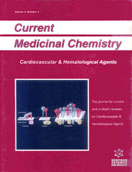Abstract
Preeclampsia has been suggested to be a two-stage disorder of an alteration in placental perfusion (stage 1) leading to generalized vascular endothelial damage (stage 2). Because the mechanism linking the two stages remains unclear, effective primary prevention is still impossible. However, advances made in our understanding of the pathophysiology of preeclampsia have paved the way for secondary and tertiary prevention approaches. Platelets are known to be activated in early pregnancy. They also play a pivotal role in the process of inflammation, as demonstrated by the finding that CD40 ligand is shed from activated platelets to directly initiate inflammation of the vessel wall. According to the Cochrane Library Update summarizing data from over 30,000 women, secondary prevention with antiplatelet drugs is associated with a 19% decrease in the risk of preeclampsia. Additional randomized controlled trials are needed to establish the association between preeclampsia and thrombophilia. The effect of the antithrombotic agent heparin on pregnancy outcome in preeclampsia and its potential preventive action in high-risk patients need to be elucidated. One of the several hypotheses of the pathogenesis of preeclampsia focuses on the oxidative stress caused by the imbalance in prooxidant and antioxidant forces. Preliminary findings on vitamin E and vitamin C supplementation in preeclamptic women are encouraging, and suggest a rationale for larger clinical trials. Although there is currently no explanation for the positive effect of magnesium sulfate on eclamptic seizures, studies have provided enough evidence to encourage its worldwide use as the primary anticonvulsant of choice in the tertiary prevention of maternal and perinatal death in severe preeclampsia/eclampsia. In conclusion, secondary and tertiary prevention of preeclampsia is possible when targeted at reducing maternal and neonatal morbidity and mortality.
Keywords: preeclampsia, prevention, antiplatelet therapy, antithrombosis therapy, antioxidant therapy, anticonvulsant therapy
 2
2













